About MLG

Mr. Macdonald is a senior litigation and administrative law lawyer.
After almost 30 years of practice, he has learned that lawyers have a simple function: resolving clients’ problems.
Clients used to get comfort hiring a fifty-partner law firm. Now clients see through comfort. They want a lawyer to resolve their problems quickly, or tell them how to resolve their problems themselves.
At MLG the mainstays for practicing law are good judgment, robust communication, and advanced technology.
Good judgment drives efficient dispute resolution. How many disputes really involve numerous complicated legal issues? Many times, there is only one key issue. The art of litigation is framing the necessary facts through that one key issue. Resolutions often have nothing to do with a legal issue.
Resolutions can happen because a lawyer is quick to grasp a client’s real interests and negotiate a favourable outcome. The art of negotiation is communicating about your client’s interests as though they were reasonable, even foregone conclusions.
MLG reduces costs through robust communication. Most important lawyers’ work happens on the phone: commitment is measured, arguments get tested, court time is reduced.
Technology has “flattened” the world, and should do the same to legal expenses. MLG uses software that maximizes client-lawyer collaboration. Our document management software searches voluminous data to identify the “needles in the haystack.”
MLG was founded on the notion that the future of the law is minimalism: one lawyer will replace five; the best lawyers will reduce court time to zero. The way toward this future is understanding that the greatest victory is avoiding a dispute before it arises.
Allan A. Macdonald
Mr. Macdonald has law degrees from Queen’s University (J.D. 1988) and Osgoode Hall Law School (LL.M. 1990). Before being called to the British Columbia bar in 1995, he held an academic position at Queen’s University’s Faculty of Law and performed legal services for the federal Department of Justice.
In his early career, Mr. Macdonald largely practiced administrative law in a boutique firm. He learned his trade in court against numerous senior experienced lawyers.
Outside of the courtroom, he was the founding Chair of the Canadian Bar Association/B.C. Branch Section on Freedom of Information and Protection of Privacy Law. He has taught as a faculty member for the Continuing Legal Education Society of B.C. and has published articles on land use regulation, privacy law, and constitutional law. He is also a former Associate Editor of the Municipal and Planning Law Reports.
He loves litigation because of its many challenges: from the rigours of conducting effective cross-examination to securing legal outcomes across the world. For fifteen years, he acted on behalf of lawyers sued by their clients. During this period acting as the “lawyers’ lawyer,” he became immersed in professional negligence litigation which includes lawsuits brought against accountants, financial advisors, lawyers, notaries, and realtors.
In 2015, he established his own law firm to maintain control of the quality and quantity of the work he delivers. Each client is his personal client, not one who has hired a firm with a complicated ownership structure. He enjoys collaborating on files with clients, but counsels them that his role is to “shoulder” the dispute, so they can avoid disruption and focus on their normal, productive lives.
In the community, Mr. Macdonald was a long serving Treasurer and member of the Board of Directors of the B.C. Freedom of Information and Privacy Association. He is also a former member of the Board of Directors of The Townships Project, which fosters micro-finance organizations in South Africa.

Macdonald Law Group Practice Areas

Mr. Macdonald is a senior litigator with over twenty years of courtroom experience. His practice has focussed mainly in the areas of commercial litigation, land use, and professional negligence litigation.
He has litigated cases ranging from simple wrongful dismissal to complex stock fraud. He has a deep understanding of the issues arising from breaches of duty (fiduciary and tort), partnership disputes, and shareholders’ disputes. He also practices estate litigation. Of special importance in all litigation, he has dealt extensively with the spectrum of issues concerning the measure and scope of damages awards.
Deeply knowing areas of law does not, itself, “make” a litigator. Litigation is about obtaining results. The outcome of a lawsuit – and, importantly, the timing of the outcome – is often not determined strictly by the merits of a claim. An efficient result is often obtained by bringing a tactical court application designed to weaken an opponent. A timely “interlocutory” court order can end the dispute, or so weaken an opponent that the only option is a quick settlement. The more basic of these orders include injunctions and stays. The type of order available, and the strategic purpose it achieves, is a function of a litigator’s creativity and judgment. Quickly resolving the core issue of a dispute may be achieved, for example, by winning a court order determining the rate of interest running on a mortgage. Or, everything could turn on winning an order preserving a “smoking gun” document obtained from an opponent’s hard drive.
Mr. Macdonald is skilled in crafting and timing interlocutory applications. A selected list of the numerous interlocutory applications that he has prepared — about such diverse matters as the B.C court’s jurisdiction to prevent abuse in the conduct of a “derivative action,” and the Cayman Island Grand Court’s power to rectify a trustee’s past mistakes — may be found here:
The truth is that approximately 90% of lawsuits settle. Mr. Macdonald delivers on strategy and tactics designed to strengthen and maximize his clients’ settlement options and opportunities.
Professional Negligence Law
Litigation | Professional Negligence Law | Administrative Law | Privacy and Cybersecurity Law
Acting on behalf of both plaintiffs and defendants, Mr. Macdonald has litigated claims brought against professionals including lawyers, financial advisors, accountants, notaries, and realtors.

Suing Lawyers in Vancouver
For over fifteen years, Mr. Macdonald defended lawyers against negligence, breach of contract, and breach of fiduciary duty claims. He now acts for clients suing lawyers. He understands the stress and intimidation that a client feels confronting a former trusted advisor. He also has a deep familiarity with the tactics and strategies that the lawyers’ defence team uses against former clients.
Over the years, he has successfully employed these tactics and strategies in lawsuits against lawyers practicing in the following areas:
- Aboriginal leaseholds
- Canadian and US tax law
- Civil and commercial litigation
- Creditors’ rights disputes
- Family law
- Mineral rights law
- Motor vehicle law
- Offshore corporations and trusts
- Real estate law
- Share purchase transactions
- Trustee law
- Wills and Estates Law
A selected list of lawyers’ negligence cases where Mr. Macdonald has acted is here:
A list of questions for you to consider in deciding whether to sue your lawyer is here:
Suing Financial Advisors & Accountants in Vancouver
Financial advisors and accountants owe similar duties to their clients as lawyers do to theirs. Over the years, Mr. Macdonald has acted in lawsuits brought against former financial advisors and accountants.
The ways that a financial advisor can breach his or her duty to a client include the following:
1. Failing to follow the “know your client” rule and, thereby, advising a client to purchase investments unsuitable for their investment knowledge and risk tolerance.
2. Recommending the purchase of financial products when the advisor is unlicensed to deal with such products.
3. Recommending the purchase of financial products where the advisor has an undisclosed personal interest in the products. Accountants may be similarly liable for providing negligent investment advice.
In addition, they may be liable for delivering accounting services which do not meet the requisite “standard of care,” examples of which include the following:
1. Failing to properly advise about the “replacement property rules” in the Income Tax Act in respect to the sale and purchase of properties.
2. Failing to make the necessary inquires in the preparation of “Future-Oriented Financial Information” to be relied upon by a company’s investors.
Suing Notaries in Vancouver
Notaries owe the same duties to their clients as lawyers. Lawsuits can brought against notaries for breach of duty, breach of contract and/or breach of fiduciary duty.
Examples of such breaches include the following:
1. In a real estate transaction, failing to protect a property purchaser from potential liability arising from a non-resident vendor not paying the taxes due on the transaction according to the Income Tax Act.
2. In a real estate transaction, failing to verify lot measurements and advise clients of their right to refuse to complete the purchase.
Suing Realtors in Vancouver
Mr. Macdonald acted as defence counsel for realtors for a number of years. Besides negligence, realtors may be found liable for torts such as negligent misrepresentation and deceit.
Examples of circumstances where realtors have been found liable include the following:
1. In respect to the purchase of a unit in a housing cooperative on leased land, failing to discover or advise a purchaser of the existence of a head lease provision allowing for a rent revision every 22 years based upon land value.
2. In respect to the purchase of a home, a realtor was found liable for deceit for failing to advise the purchasers that he was aware the home had a mildew problem and actively dissuaded them from obtaining a home inspection prior to deciding about the purchase.
Disclaimer: The legal principles and examples cited above are intended to be used for informational purposes only, and do not constitute legal advice in respect to any of the matters addressed. Readers should seek legal advice with respect to any questions about how the principles addressed above may pertain to their own particular circumstances.
Administrative Law
Litigation | Professional Negligence Law | Administrative Law | Privacy and Cybersecurity Law

Mr. Macdonald practices administrative law with respect to the licensing and regulation of professionals. He understands the strategic relationship between simultaneous administrative proceedings and litigation brought against professionals.
Besides professional regulatory issues, he has dealt with administrative law issues arising in the following areas: commodity taxation, education law, freedom of information and privacy law, land use and municipal government regulation. He has appeared before various regulatory bodies, city councils, all levels of the B.C. Courts, and the Federal Court of Canada.
Practicing administrative law is supposed to be about the meaning of regulatory statutes and the legal doctrines which guide their interpretation. Mr. Macdonald has honed his skills acting both on behalf of the regulator and the regulated. His experience on “both sides of the argument” has taught him that the key to practicing administrative law successfully is balance.
An aggressive interpretation of a statute or regulation often results in blindness as to merits of the opponent’s interpretation. A balanced argument presents insights about the opponent’s interpretation, and demonstrates why its shortcomings should bar the opponent from success. A key ingredient to any authoritative argument is demonstrating why the alternative arguments must fail.
Before any administrative law outcome, there are many opportunities to negotiate a settlement, and the path which maximizes the opportunity to do so is maintaining a balanced approach throughout. When the interpretation of a statute or regulation will likely go against a client, a balanced approach still generates positive outcomes; for instance, by demonstrating that the “proper” interpretation results in an unjust outcome which merits special consideration.
Privacy and Cybersecurity Law
Litigation | Professional Negligence Law | Administrative Law | Privacy and Cybersecurity Law

For over twenty years, Mr. Macdonald has been advising clients about privacy issues arising in both the private and public sector. His involvement in this area includes the following:
- Founding Chair of the Canadian Bar Association (BC Branch) section on privacy law;
- Director and treasurer of the British Columbia Freedom of Information and Protection of Privacy Association;
- Author of articles published by the Continuing Legal Education of B.C. and The Advocate;
- CLE faculty member at inaugural conference regarding the federal Personal Information Protection and Electronic Documents Act S.C. 2000, c. 5; and,
- Author of submissions delivered on behalf of the Canadian Bar Association to the provincial legislative committee considering the bill leading to the passage of the Personal Information Protection Act SBC c. 63.
Mr. Macdonald is now advising clients about all aspects of cybersecurity law as it pertains to the collection, use, and disclosure of personal information.
Macdonald Law Group Cases

Lawyers' Negligence Cases
- Briere Sound Ltd. v. Briere, 2014 BCSC 1385
- Chinn v. Hanrieder, 2013 BCCA 310
- Dhillon v. Jaffer, 2011 BCSC 942
- Versatile Mortgage Corp. v. Hemmingson, 2010 BCSC 1361
- Chinn v. Hanrieder, 2009 BCSC 635
- Sangha v. Azevedo, 2005 BCCA 18
- Roeder v. Blues, 2004 BCCA 649
- Pirie v. Armstrong et al., 2004 BCSC 1346
- Roeder v. Morton & Company et al., 2003 BCSC 1867
- Vince Estate v. Christian Reformed Seniors Housing Society, 2002 BCSC 1392
- Banyay v. Christie and Co., 2001 BCSC 1165
Interlocutory Cases
- Robinson Estate v. Wolsey, 2025 BCSC 529
- Davidson v. Lyra Growth Partners Inc., 2024 BCCA 133
- Roeder v. Pinchin, 2016 BCSC 2012
- Forrest v. Vriend, 2015 BCSC 1878
- Briere Sound Ltd. v. Briere et al., 2014 BCSC 417
- Briere Sound Ltd. v. Briere, 2014 BCSC 1385
- Chinn v. Hanrieder, 2010 BCCA 274
- Versatile Mortgage Corp. v. Hemmingson, 2010 BCSC 1361
- Wang et al. v. CIBC Bank and Trust Company et al., Grand Court No. 0089 of 2010
- Solara Technologies Inc. v. Beard, 2007 BCCA 402
- Toporowski v. Keast, 2007 BCSC 1941
- Sangha v. Azevedo, 2005 BCCA 125
- Dempsey v. Peart, 2004 BCCA 395
- Pacific Erosion v. Western Quality Seeds, 2003 BCSC 1743
- Norman v. Port Moody (City of), 1996 84 BCAC 146
Contact Macdonald Law Group
Our Offices
2200–1177 W. Hastings St.
Vancouver, BC, Canada
V6E 2K3





